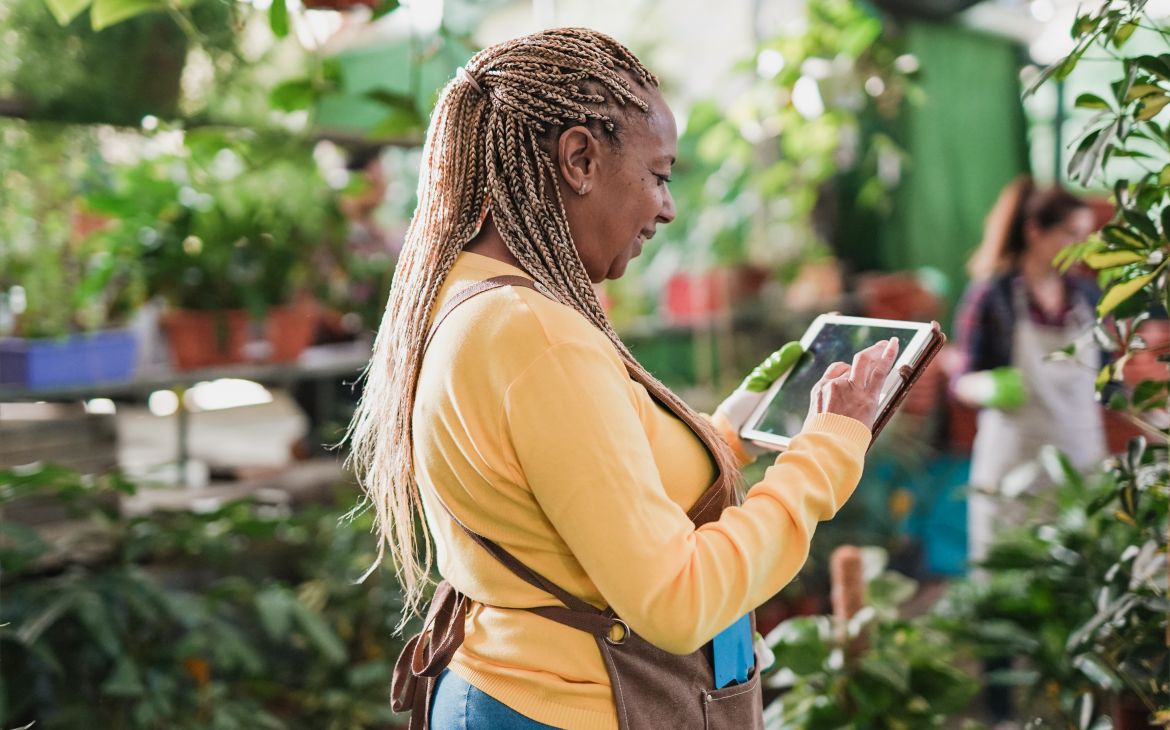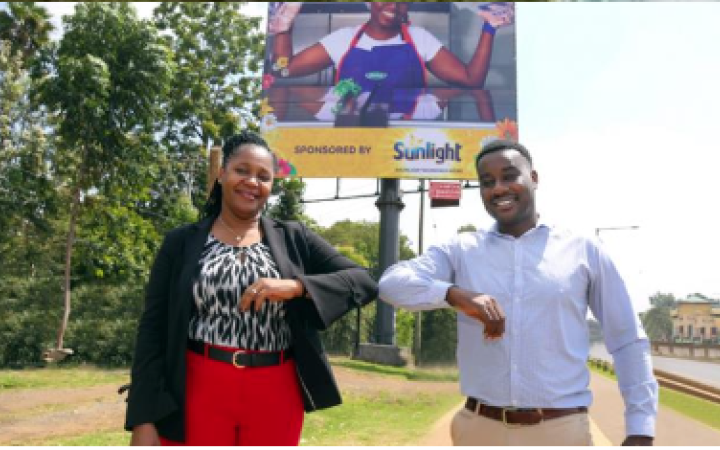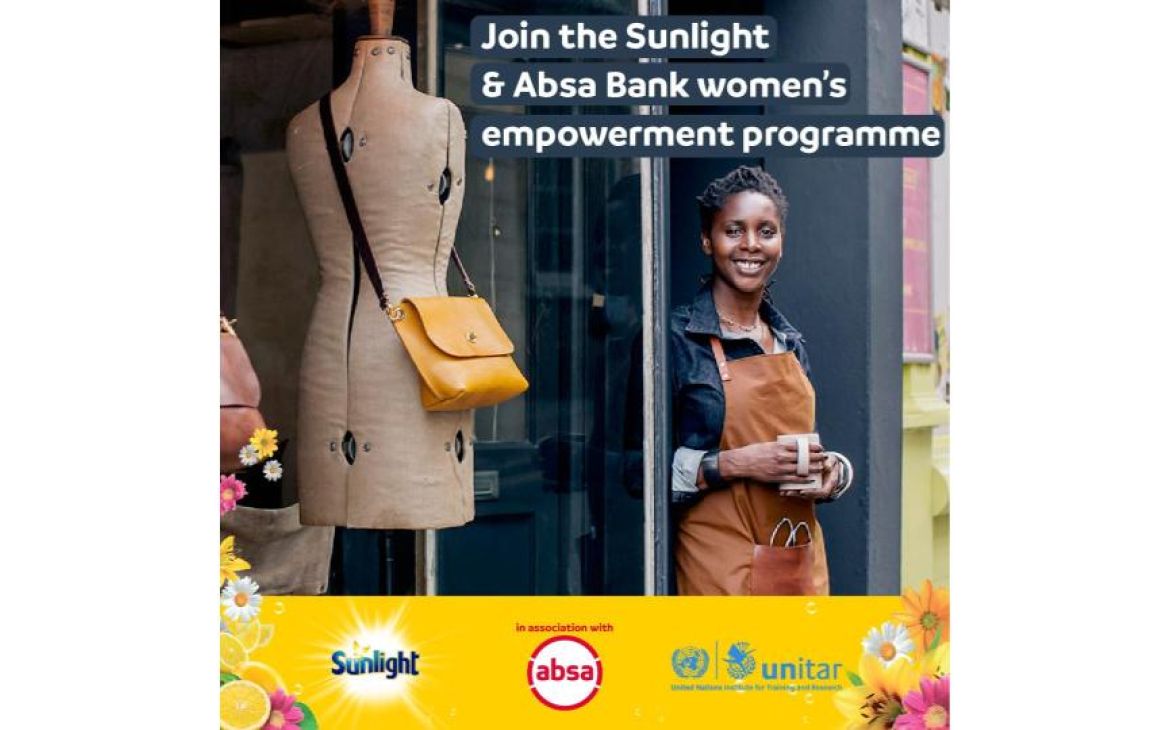- UNITAR, Unilever’s Sunlight and Absa Bank Kenya will run a new joint programme, Entrepreneurship, Innovation and Leadership Training for Women Entrepreneurs in Africa.
- The online programme will train 5,000 women entrepreneurs in Kenya by June 2022 to develop their social or for-profit businesses.
- Applications are now welcome from women business owners in Kenya who aspire to make a positive impact on their communities.
October 2021, Hiroshima, Japan - UNITAR has signed a memorandum of understanding with Sunlight (a home care brand under Unilever Kenya Limited) and Absa Bank Kenya, forming a new partnership to deliver the programme Entrepreneurship, Innovation and Leadership Training for Women Entrepreneurs in Africa.
This joint programme seeks to empower women entrepreneurs in Kenya to develop their social or for-profit businesses. The training will build the learners’ skills in social entrepreneurship, financial and digital literacy. It aims to reach 5,000 women entrepreneurs by the end of June 2022.
Applications are being accepted on a rolling basis from qualified women from the public, private and civic sectors across Kenya. Applicants should own a business that has been running for at least one year, be keen to learn, and aspire to make a positive impact on their communities.
Unilever’s Sunlight has invested in a five-year programme to support women in business through initiatives such as financial literacy training and advertising. An estimated 100,000 women entrepreneurs are expected to benefit from the “Sunlight Women of More” programme. The campaign is pegged on Sunlight’s uplifting attitude toward women in East Africa.
Absa Bank will bring its expertise on practical matters such as how to register a business, formalize operations and keep accurate records. These are important factors that not only determine entrepreneurs’ ability to attract investment and credit, but also scale their businesses.
Women are still faced with many real and perceptual hurdles that have tipped the scales against them and made it more difficult to succeed with certain opportunities. As a bank whose purpose is to bring possibilities to life, we are happy to be part of this partnership as it will go a long way in addressing historic challenges that face women entrepreneurs and support them to grow. The COVID-19 pandemic has given rise to more entrepreneurs, and we believe that with the right financial literacy, these businesses can grow exponentially. -Elizabeth Wasunna, Director Business Banking, Absa Bank Kenya.
UNITAR Division for Prosperity and Sunlight have already collaborated on a pilot programme on entrepreneurship, innovation, financial literacy, and leadership in 2020–2021, with approximately 50 learners from Unilever.
Two rounds of the new course are planned until June 2022. It will be delivered online with self-paced e-lessons. By the end of the programme, participants will be familiar with the full entrepreneurial cycle and have the knowledge to create concrete business models that reflect the needs and opportunities in their communities.
The instructional design of the new programme incorporates lessons from UNITAR’s extensive experience training women and men in the Middle East and Africa on entrepreneurship, innovation and leadership. Insights from the 2020–2021 UNITAR–Unilever pilot were also applied.
In partnering with Unilever and Absa Bank, UNITAR is delighted to promote the capacity of women entrepreneurs. UNITAR hopes that the partnership will further strengthen local initiatives and businesses and create a meaningful and sustainable impact on society.
Sunlight is committed to helping over 100,000 Kenyan women entrepreneurs develop their businesses into sustainable and profitable ventures they can be proud of by 2026. We will do this by providing tools and partnership to allow them to become More. We have done this by partnering with UNITAR and Absa Bank. -Henry Muchauraya, Homecare Director, East Africa, Unilever.
As a bank whose purpose is to bring possibilities to life, we are happy to be part of this partnership. It will go a long way in addressing historic challenges that face women entrepreneurs and support them grow,” “The COVID-19 pandemic has given rise to more entrepreneurs. We believe that with the right financial literacy, these businesses can grow exponentially. -Elizabeth Wasunna, Director Business Banking, Absa Bank Kenya.
Women leaders and their innovations are key to a sustainable and resilient society. We are thrilled to contribute to raise the chances for these women,” “We are grateful for this new partnership with Unilever Kenya Limited and Absa Bank Kenya, and are looking forward to this training initiative. -Mihoko Kumamoto, Director of UNITAR Division for Prosperity.
To apply to the Entrepreneurship, Innovation and Leadership Training for Women Entrepreneurs in Africa programme, please visit: https://apply.unitar.org/prog/sunlight_and_absa_womens_empowerment_programme/
The application deadline is 30 November 2021 (Kenya time).
About Unilever Kenya
Unilever is one of the leading suppliers of food, home and personal care products in Kenya. Working to create a brighter future every day, Unilever helps people feel good, look good and get more out of life. Its portfolio includes most loved locally produced brands, OMO, Sunlight, Royco, Geisha and Vaseline, as well as key world’s renowned brands, like Knorr, Dove, Lux, Axe, among many others.
Unilever’s vision is to be the global leader in sustainable business and to demonstrate how its purpose-led, future-fit business model drives superior performance. The company has a long tradition of being a progressive, responsible business. It goes back to the days of founder William Lever, who launched the world’s first purposeful brand, Sunlight Soap, more than 100 years ago, and it’s at the heart of how Unilever runs the company today.
The Unilever Compass, its sustainable business strategy, is set out to help Unilever deliver superior performance and drive sustainable and responsible growth, while:
- improving the health of the planet;
- improving people’s health, confidence, and wellbeing; and
- contributing to a fairer and more socially inclusive world.
While there is still more to do, Unilever is proud to have been recognized in 2020 as a sector leader in the Dow Jones Sustainability Index and – for the tenth-consecutive year – as the top-ranked company in the 2020 GlobeScan/SustainAbility Sustainability Leaders survey.
For more information about Unilever its brands, please visit www.unilever.co.ke.
about absa bank kenya
Absa Bank Kenya PLC is listed on the Nairobi Securities Exchange and is one of Kenya’s leading financial institutions. Established in 1916, Barclays has been a major player in Kenya’s financial landscape, engaged in personal and corporate banking, enterprise, credit cards and bancassurance.
The bank offers end-to-end financial solutions to retail, enterprise and corporate customers, and its regional and global footprint enables it to offer cutting-edge financial solutions to its clients. The bank is a leader in the credit card space. It has also been associated with a number of market firsts, such as the launch of the first ATM, Sharia-compliant banking and unsecured lending.
Absa Bank Kenya has presence in 38 counties. It has 86 branches, 212 ATMs and a robust Internet and mobile banking platform. The bank’s purpose is to bring possibilities to life.
For more information, write to communications.ke@absa.africa.
about Unitar
The United Nations Institute for Training and Research (UNITAR) provides innovative learning solutions to individuals, organizations and institutions to enhance global decision-making and support country-level action for shaping a better future. Located in Hiroshima, UNITAR’s Division for Prosperity offers world-class learning and knowledge-sharing services to present and future change-makers from developing countries, particularly youth and women, that are designed to shape an inclusive, sustainable and prosperous world.
Our programmes are dedicated to addressing growing inequalities, working in solidarity with diverse partners at the local, regional and global levels.




